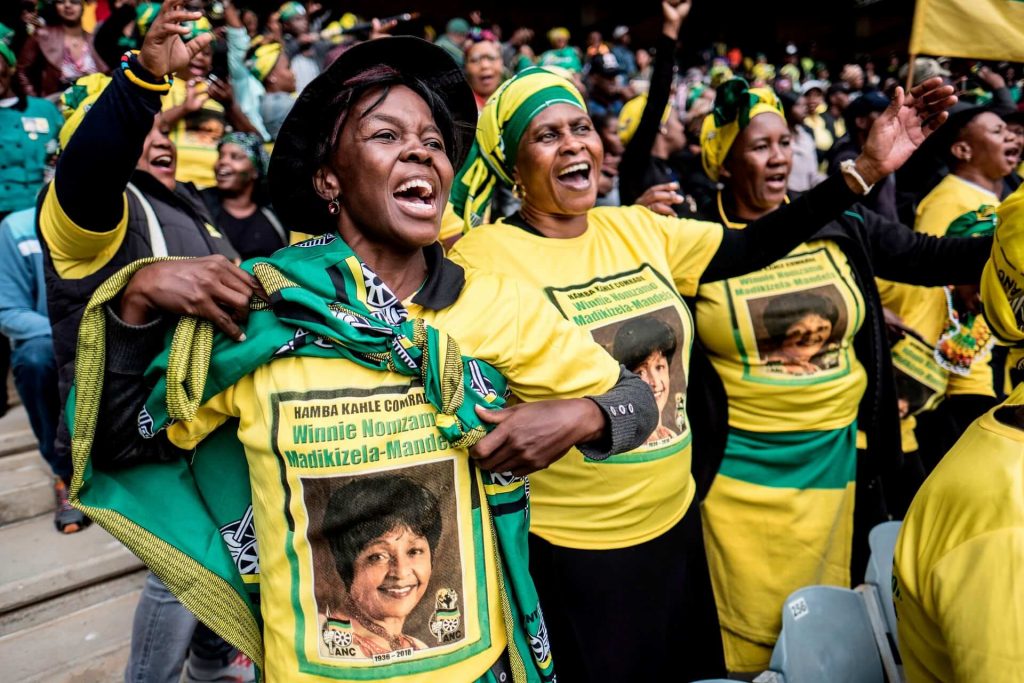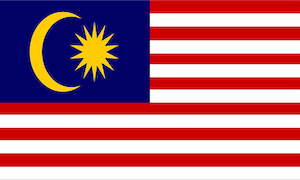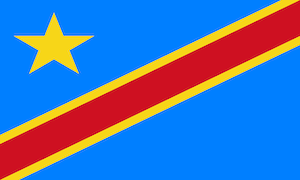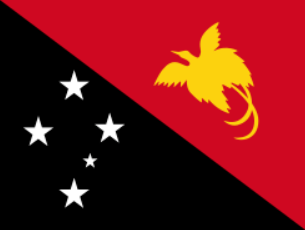April 13, 2018

Photo: Women at the memorial of Winnie Madikizela Mandela. The Guardian.

Russia reports that Syrian forces have retaken Eastern Ghouta, the heavily besieged suburb of Damascus. This means that now, Assad’s power is the most secure it has been since the start of the Syrian civil war. Furthermore, while this is a victory against extreme rebel groups that have held the territory for years, it comes at an immensely high cost. The UN refugee agency reported this week that more than 133,000 have fled Eastern Ghouta since the escalation of this siege. Moreover, the Assad government is again accused of using chemical weapons in its attempts to retake this area. While the use is thus far unconfirmed officially, it is strongly substantiated. 500 people in Eastern Ghouta have demonstrated symptoms consistent with chemical attacks; residents reported hearing things falling from the sky, leaving strange smells; videos coming out show people sprawled on the floors of their homes, killed by apparent suffocation; of 70 killed while taking shelter in basements, 43 showed signs of “highly toxic chemicals” according to the World Health Organization. The Organization for the Prohibition of Chemical Weapons, an international watchdog, is on its way to Syria to investigate and uncover whether chemical weapons were used, and if so, to find out what was the nature of the attack.
Many governments in the West have expressed abhorrence over the chemical attacks, generally agreeing on the need for action, and in some cases threatening a military response. Assad has, however, both denied the use of chemical weapons and warned these governments against intervention of any kind. “Any possible action will only cause more instability in the region and threaten international security and peace.” Russia has warned also of the risks of escalation, calling them a grave threat to the growing prospect of an end to the Syrian conflict and to peace between itself and the United States.

The “anti-fake news” bill has officially been passed, and as of Wednesday April 11 is now enforceable. It was fast-tracked through Parliament and includes provisions of harsh punishments of up to six years in prison and a maximum fine of $170,000. Activists, opposition groups, and rights advocates worry this bill will be used to restrict freedoms of speech and expression, despite government reassurances that it is purely to limit fake news.
Prime Minister Najib Razak is seeking a third term, despite accusations of corruption and embezzlement marring him and his administration, and recently the government engaged in gerrymandering just before announcing the elections.
Malaysians were surprised when the Election Commission declared May 9 would be polling day for the 14th general election, making this year the first time voting will take place on a weekday since 1999 and creating a shorter campaign period than in the past. Low voter turnout is expected to stifle the opposition support. Malaysian citizens are organizing massively across the country and internationally. A petition to make the day of the election, May 9, a national holiday was posted on Change.org by a university student and has gained over 100,000 signatures. Connecting over social media, many citizens are working together to help each other return home to vote. Over Twitter and Facebook they made plans for carpools and arranging free rides, some individuals even offering financial aid to their fellow countrymen. Private companies have joined the effort as well, some promising paid leave or offering to cover travel expenses. Political parties have made arrangements to ferry Malaysians home from Singapore for the election, while others in Singapore have chartered buses to bring them home. The hashtag “PulangMengundi” (“Go home to vote,” in English) trended on Twitter. These efforts yielded results when PM Najib’s office said May 9 will be a public holiday so that “Malaysians can fulfil their duties as voters.”

Speaker of the House Paul Ryan announced this week that he will not run for re-election in November. He plans instead to step down in January, at the end of this cycle. This news has shaken the US Capitol and upended the Republican party, who already fear a significant victory for the Democrats in the upcoming elections. Many feel that his intent is to leave of his own accord, before being eventually forced out by the nation’s shifting political tides. At only 48, however, the prospect of an eventual political re-entry remains great.
President Donald Trump has expressed a desire to re-enter the Trans-Pacific Partnership (TPP). This comes in response to complaints from his constituents that when Trump withdrew from the agreement just days after taking office, their businesses and industries were hurt. The TPP did and would again facilitate international trade with some of the world’s largest economies, especially China, if enacted. Trump’s announcement nevertheless shocked his cabinet and advisers, as he has previously called the TPP a “rape of our country” and made his pledge to leave it and NAFTA “bedrock promises of his populist campaign.” Members of the TPP have welcomed the rejoining, but warn that the terms of the agreement will not change from what was presented to Obama. In a wider reaction, stock markets saw growth after news broke of the prospect. This has the potential also to affect US foreign policy, especially in regard to the complicated state of present affairs between the nation and China.
The US news was filled with developments of Mark Zuckerberg’s congressional testimony regarding both the privacy and security of users after more than 87 million had data taken and utilized by the firm Cambridge Analytica, and also the platform’s involvement in the scandalous fake news and foreign involvement in the 2016 US election. Before the testimony began, Creative protesters assembled a small army of cardboard figures to greet Zuckerberg at the Capitol. The activist organization Avaaz set up these Zuckerbergs, wearing shirts reading “fix fakebook”, in an awareness campaign about the danger of fake news and Facebook’s role in propagating it.

The head of Venezuela’s National Electoral Council, Tibisay Lucena, has warned that “encouraging people not to vote is prohibited by law.” This warning was issued after the Democratic Unity Roundtable, the main opposition coalition, called for a boycott of the upcoming election to avoid legitimizing what it has deemed to be a sham election. The UN has continued to refuse to send election observers, despite pleas from both Maduro and the opposition to do so. Former Prime Minister of Spain, Zapatero, who mediated talks between Maduro and the opposition for the past two years, has agreed to participate as an observer.
Henri Falco?n, running against Maduro, has been hitting the streets to drum up support and encourage citizens to participate in the election, in contrast with the main opposition’s stance. Recent polls show Falco?n as leading Maduro by 10 points, but also show many of his supporters do not plan to vote and that overall turnout is expected to be lower than in any other presidential vote since Chávez’s election two decades ago. While campaigning at a market, shaking hands with citizens, he was quoted saying “Let’s get the dirty men out of power. Please, if we vote, we win!” and that “Abstaining neutralizes people. Participating mobilizes them.”
Venezuelans abroad in Peru are using the Summit of the Americas as a platform to protest against the Maduro. Many opposition members, having fled the crisis, settled in Peru. Now, they are demanding the opportunity to return to a Venezuela free of the the “tyrant” Maduro, asking Latin America to take a harder stance against the regime. Some are handing out CD’s titled “Rock Against Dictatorship,” produced by Venezuelan rock bands, which are filled with songs that criticize human rights abuses and corruption within the Socialist Party.

On Wednesday, April 11, a Myanmar official visited a of Rohingya refugee camp in Bangladesh, the first visit made since the military crackdown last year. There, he told around 50 refugees that beginning the repatriation process was a top priority for the government. He also reportedly told them that upon their return, they must accept national verification cards and announce they are migrants from Bangladesh, angering the refugees who say that they belong to Myanmar. The Rohingya have issued a list of 13 demands that must be met before they will return, including the official recognition of their citizenship, of Rohingya as an ethnicity, and the release of all Rohingya who have been unjustly imprisoned. The UNHCR maintains that conditions in Myanmar are not yet acceptable for the voluntary “safe, dignified and sustainable return of refugees” and that the responsibility for making these conditions a reality is with the Myanmar government. Additionally, the UNHCR again requests full and unfettered access to Rakhine state, to assess and monitor the situation and the return of the Rohingya, if and when they voluntarily return.
The same day, a Myanmar court refused to dismiss the case against the two Reuters journalists. They had been arrested in December for violating the Official Secrets Act during their investigation of the massacre of 10 Rohingya in Rakhine state. The government is prosecuting them over documents, handed over by police at the time, that it now insists contain secret and sensitive government information. The judge decided there was enough evidence for a trial, despite the arguments made by the journalists’ lawyers, and the next hearing is set for April 20. The journalists will face up to 14 years in prison if convicted. The court decision came just hours after an announcement from the military saying that four army officers and three soldiers had been sentenced to 10 years of hard labor for their roles in a massacre — the very same one the journalists were investigating.
Civil rights advocates lauded Mark Zuckerberg’s commitment to increase efforts to block hate speech on Facebook. They maintained, however, that more efforts would be necessary to block hate speech. Activists said they had found examples of Facebook “being used to incite real harm” and violence against Rohingya.

President Joko Widodo’s chief of staff Moeldoko said regional elections this year, followed by a presidential and parliamentary vote in 2019, should not deter foreign investment in the country. According to Moeldoko, the government is focusing on ensuring political and economic stability through the election period, which he called a “festival of democracy.”
Former special forces commander Prabowo Subianto has accepted his party’s, the Gerindra (Great Indonesia Movement Party), nomination to run for president in next year’s elections. The controversial Prabowo has been connected to several alleged human rights abuses during bloody military operations in Timor-Leste, formerly known as East Timor, and Papua as well as in Jakarta in 1998, although he has denied all allegations. Prabowo ran as a presidential candidate in the 2014 elections, but lost to Joko Widodo. The Gerinda party and Prabowo are both closely affiliated with conservative religious groups, gaining increasing influence in the country.

Independent candidate Jaime Rodriguez Calderon has been added back onto the presidential ballot following a review by the National Electoral Institute (INE). He had been excluded from the race for failing to gain sufficient signatures in order to run as an independent when over half of his signatures were declared invalid. However, Mexico’s electoral tribunal ordered the INE to reinstate Rodriguez on the ballot because of a failure to double-check the invalidated signatures: a failure they contend constitutes a violation of Rodriguez’s due process rights. This has worried Margarita Zavala, the other independent candidate.
An electoral court ruled this week that the attorney-general’s office illegally used public funds to influence the election when they released a surveillance video depicting opposition Ricardo Anaya swearing. If Anaya were to lose popularity, it could allow ruling party PRI candidate Meade to replace him in second place during the elections, leaving Meade to directly contend with Lopez Obrador.
Mexico’s Green Candidate Maribel Barajas Cortes was reportedly found dead yards from her car. The cause of the homicide is yet unknown. This murder is the latest in a series of over 25 killings committed ahead of the elections. Most of the victims are local candidates, but have ranged across political alignments and movements. Many of the murders remain unsolved, despite police promises to fully investigate the crimes.

A draft law on minimum wage has been produced and is now being sent to the relevant ministries, including the Labour Ministry, for review. After it has been reviewed, it will be sent to the National Assembly for approval. The law was written by unions, employers, and the government, and applies only to the garment and footwear sectors. The garment sector will serve as an experiment and an example. The law is intended to benefit all workers and the state across sectors, since it will “promote a decent living, create job opportunities, increase worker productivity, and push for increased investment opportunities.” Labour Minister Samheng says he hopes to have the law approved by the end of June.
Sam Rainsy, former head of the dissolved opposition party Cambodia National Rescue Party (CNRP), has called for a boycott of the general election in July if the CNRP is not allowed to take part. It is unclear if he was speaking on behalf of the party. In response, a spokesperson for the ruling CPP proclaimed that the Cambodian people have lost faith in Rainsy and will be participating in the elections regardless of his plea. Cambodian expats added their voices to the boycott call during the World Khmer Conference in Australia. CNRP Vice President Mu Sochua, who attended the conference, stated that an opposition party presence is necessary, but did not clarify the CNRP’s position. The National Election Committee warned that anyone who urged for a boycott, or otherwise interfered with the election, could be subject to fines and criminal charges
The CPP also announced that it is considering a “fake news” bill, adding to a concerning trend of tightening spaces for media and civil society. Media and activists worry the law will be used to limit critical speech rather than target the spread of false information, particularly since the exact scope of “fake news” has not been detailed and is often used as a scapegoat to silence dissenting opinions.
In a statement to the Cambodian people, to wish them a happy new years, Prime Minister Hun Sen took the opportunity to congratulate the government for its prevention of a “color revolution.” He also accused the opposition of colluding with foreign powers to orchestrate the color revolution in an attempt to topple the government. Ou Chanrath, a former opposition lawmaker, said the attempt to associate the opposition with color revolution was intended to plant “confusion.” “The CNRP stands on principles of nonviolence . . . We have never thought of competing for power by using the colour revolution,” he said.

U.S. Senators Christopher Coons and Jeff Flake from the Senate Foreign Relations Committee met with president Mnangagwa over the weekend in an effort to strengthen the bilateral relationships between the countries, and to discuss the conditions for U.S. financial sanctions imposed in 2001 to be lifted, namely the holding of free and fair elections. Coons stated that the gradual lifting of the sanctions will depend on progress made during the next following months, such as non-interference in elections by the military, transparency, and the following of guidelines. Mnangagwa has stated that he is committed to holding free elections, and the Ministry of Foreign Affairs has released a statement explaining their intention to invite 46 countries, 15 organizations, and 2 eminent persons to observe the forthcoming elections. All former African Liberation Movements are also proposed to be invited. Foreign Affairs and International Trade Secretary Ambassador Joey Bimha said that the government has decided to “re-engage with the West and the rest of the international community.”
The National Patriotic Front (NPF) linked to ex-president Mugabe and his wife, Grace, has said it will defeat the ruling party if polls are free and fair in the forthcoming elections. According to NPF acting chairperson Eunice Sandi Moyo, Zanu FB commissars have already started collecting BVR (Biometric Voter Registration) slips in villages, an action that has been deemed illegal by Zimbabwe Electoral Commission and the government.
In line with president Mnangagwa’s efforts to open up the country to foreign investors, the government is planning to set up a one-stop investment promotion agency, which will be a replica of the Rwanda Development Board (RDB) model. Visits from the chief executive and CEO of RDB took place this week together with Mnangagwa.

A donor conference seeking to raise $1.7 billion to support humanitarian activities in DRC is being held in Geneva today, but without the presence of representatives from the country. Léonard She Okitundu, the DRC’s foreign minister had already said that they will not participate in the conference, denying there is a humanitarian crisis in the country.
The Electoral Commission Ceni has begun to test voting machines as part of a new system during the elections expected on December 23. The system was used during elections in Namibia 2014, although country has 1.2 million voters compared to DRC’s 46 million. Spokesperson of Civil-society group Agir pour les Elections Transparentes Gerard Bisambu said at a conference in Johannesburg that the system will allow for fraud, although the Electoral Commission has argued for the opposite. Civil society groups, as well as the Congo Research Group also expressed its concerns, “The way in which the Ceni introduced voting machines has undermined public trust in an already controversial electoral process,” saying that “The use of voting machines could foment chaos on election day.”
Five rangers and a driver were killed in an ambush in Virunga national park, and a sixth ranger was injured. The park, sometimes referred to as one of the most dangerous conservation projects in the world, has seen more than 170 rangers die over the last 20 years. The area, important to ecological diversity and natural resources, is also home to armed rebel groups, and “Mai Mai” militia, local bandits and poachers. A catholic priest was shot dead on Sunday, reportedly by Mai Mai Nyatura fighters.
Uganda and the DRC have agreed to remove non-tariff trade barriers in a bid to boost trade between the two African countries. The meeting took place on Wednesday.

On April 5th, six human rights activists were sentenced to lengthy imprisonment following accusations of advocating a multiparty democracy and attempting to overthrow the government. Among the activists were Human rights lawyer Nguyen Van Dai, who was sentenced to 15 years in prison and five years under house arrest whereas his fellow activists were sentenced to seven to 12 years. The activists were also charged for affiliation with the outlawed group ‘Brotherhood for Democracy’, advocating for a multiparty system.
On Tuesday activist Nguyen Van Tuc was convicted to a 13-year prison sentence on the same charges. A third trial for activists Nguyen Viet Dung and Tran Th? Xuan on April 12th resulted in both being jailed and given nine- and seven-year sentences respectively, convicted of spreading anti-state propaganda and attempting to overthrow the government. Dung, accused of and confessing to distorting government policies and defaming leaders of the country in blog posts and on his Facebook page, was also sentenced to five years of house arrest upon completing his seven-year prison sentence. Xuan was sentenced to nine years in prison and five years of house arrest for instigating protests to pollution, affiliating with the Brotherhood of Democracy, and for attempting to overthrow the government. International organizations Amnesty International and Human rights Watch have called for Dung’s release. According to new research by Amnesty, there are at least 97 prisoners of conscience in the country, facing deploring conditions and torture.

On April 7, an aftershock 6.3 magnitude earthquake struck the highlands of Papua New Guinea, killing 132 people and injuring 500. The region is still struggling to recover from a 7.5 quake only two months ago, leading to the death of 125 people and leaving hundreds of people homeless, as well as damaging mining and power infrastructure in the region. The United Nations had estimated that around 270,000 people were in need of immediate assistance and 43,116 people had been displaced in 44 locations and care centers, but nevertheless decided to withdraw its aid workers just two days before the last quake due to outbreaks of violence from residents. On Thursday, the UN aid was still blocked as the relief has been stalled due to landslides and the remoteness of affected areas, and ongoing violence. A military officer working to coordinate relief has said that mediators from the authorities are establishing dialogues for peace between warring tribes in the Hela Province.
Maldives – The hearings of Chief Justice Abdulla Saeed and top-court judge Ali Hameed, both arrested during the recent state of emergency, are proceeding discreetly in Malé. A reason for such strong secrecy around the trials has not been given, but bodes poorly for both facing very serious anti-constitutional and terrorism charges. – AVAS
Cuba – A travel ban was applied recently to two more outspoken opponents to the regime. Ileana Alvarez, director of the feminist magazine Alas Tensas, and Pedro Manuel Gonzalez Reinoso of CubaNet, which is censored on the island, were forbidden from leaving the country. They join recently banned activists Adonis Milian, Gorki Avila, and Berta Soler. – Havana Times
Hungary – Prime Minister Viktor Orbán has won another term in office after sweeping the election with his right-wing, populist party Fidesz. International observers have expressed concern that the election and campaigning were not fair, heavily manipulating voters and in some ways abusing the electoral system. – NYTimes
Russia – The city of Yekaterinburg has canceled its mayoral elections after the current mayor, a vocal social activist, expressed opposition to the re-election of Vladimir Putin. An appointee system will replace the direct elections in this fourth-largest Russian city. – The Guardian
South Africa – The memorial service for Winnie Madikizela-Mandela was attended by thousands of mourners. – Al Jazeera
Uganda – Uganda plans to introduce a new tax on social media users from July, which human rights activists have denounced as another attempt by President Yoweri Museveni to limit freedom of expression and quash dissent to his 32-year-rule. The proposal, which will charge each mobile phone subscriber using platforms such as WhatsApp, Twitter and Facebook with a tax of 200 Ugandan shillings ($0.027) per day, has been sent to parliament for approval. – Reuters
Thailand – A group called the Future Forward Party is in the process of applying to be a political party. It was created by a billionaire and former student activist named Thanathorn Juangroong-ruangkit who aims to install a stable civilian government and “send the military back to the barracks” and has been seen as a champion for the advancement of women’s and LGBTQ issues. It is one of only 15 parties that have been approved out of the 98 parties that requested to be registered as a political party. It dropped its campaign to reform the lese majeste law, which prohibits critical speech against the royal family, in an attempt to gain a political foothold and perhaps earning it a spot among the 15. – Khao Sod | Nation
Thousands of Pashtuns Rally for the Right to Live Without Fear
Approximately 60,000 Pashtun and Pakistani activists rallied recently in the city of Peshawar, demanding an end to decades of political mistreatment, the removal of military checkpoints in tribal areas, and the release of their friends and relatives who have been taken as political prisoners by the Pakistani government.
Bead Portrait Raises Awareness of Violence Against Indigenous Women
A Native American artist/activist is creating a large-scale portrait out of 4,000 beads. Each bead is to represent an indigenous woman who has gone missing or been murdered, and was hand-rolled by community members across the US. The portrait will honor the sister of a victim, and promote awareness of this issue through socially engaged art.